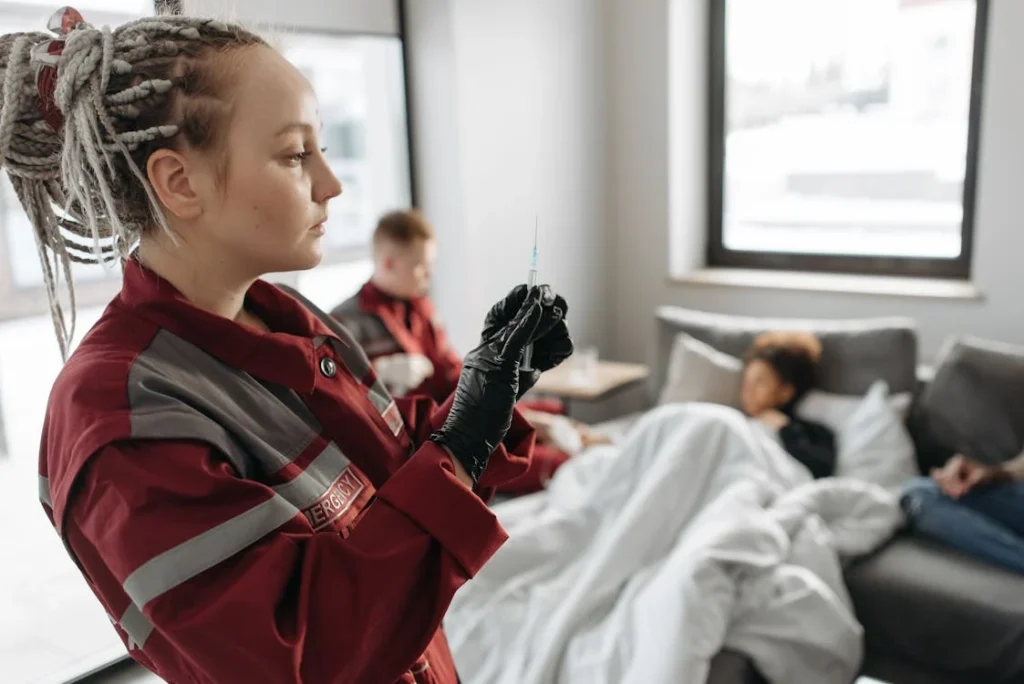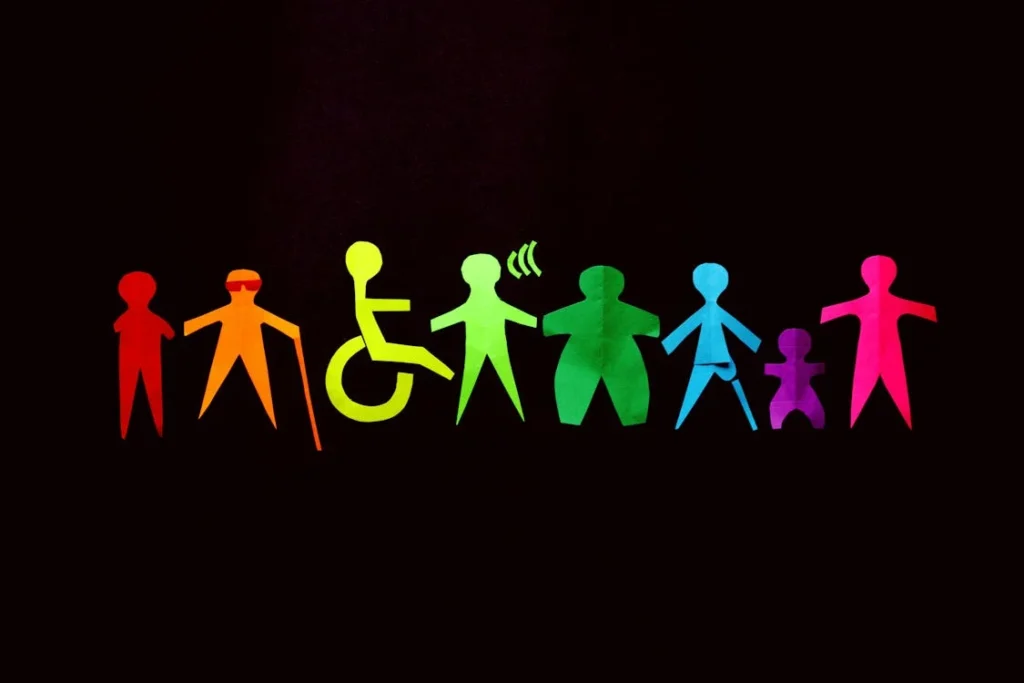Not all disabilities are visible. Many people live with conditions that affect their daily lives but may not be immediately noticeable to others. These invisible disabilities include chronic illnesses, neurological disorders, mental health conditions, and autoimmune diseases. Despite facing significant challenges, people with invisible disabilities often struggle to gain recognition, support, and legal protection.
In India, disability rights have improved over the years, particularly with the Rights of Persons with Disabilities (RPWD) Act, 2016. However, many policies and societal attitudes still focus on visible disabilities, leaving those with invisible conditions overlooked. People with chronic pain, cognitive impairments, or psychiatric disorders often face skepticism, discrimination, and lack of accommodations in workplaces, schools, and public services.
Understanding the rights of people with invisible disabilities is crucial in ensuring that they receive equal opportunities, reasonable accommodations, and the dignity they deserve.

Recognizing Invisible Disabilities and the Challenges They Present
Invisible disabilities are medical conditions that may not be immediately noticeable but significantly impact a person’s ability to function in daily life. Unlike physical disabilities that can be seen, these conditions often go unnoticed, leading to misunderstandings and discrimination.
In India, the conversation around disability has largely focused on mobility impairments and sensory disabilities, leaving many people with invisible conditions struggling for recognition.
What Qualifies as an Invisible Disability?
Invisible disabilities cover a wide range of conditions that affect physical, mental, and cognitive health.
These include chronic pain disorders, autoimmune diseases like lupus and multiple sclerosis, neurological conditions such as epilepsy and fibromyalgia, and mental health conditions like anxiety, depression, and bipolar disorder.
Learning disabilities, ADHD, and sensory processing disorders also fall under this category.
Despite affecting millions of people, invisible disabilities are often not taken seriously. Many individuals with chronic illnesses are labeled as “lazy” or “unreliable” when they are unable to meet traditional expectations at work or school.
Others with mental health disorders face stigma and are told to “just think positively” rather than receiving the support they need. These challenges highlight why legal protections and awareness are so important.
The Struggles of People with Invisible Disabilities in India
One of the biggest challenges faced by individuals with invisible disabilities is proving their condition. Because their disability isn’t immediately visible, they often encounter doubt, skepticism, and outright dismissal.
Employers may question whether they truly need accommodations, and even friends and family may struggle to understand their difficulties. This lack of awareness can make daily life frustrating and exhausting.
Accessing disability benefits and protections in India can be difficult for those with invisible conditions.
The RPWD Act, 2016 provides legal rights and accommodations, but many individuals with conditions like chronic fatigue syndrome, severe anxiety, or fibromyalgia find it hard to qualify under the current certification system.
Government disability assessments often prioritize visible impairments, leaving many people without the official recognition they need to access support.
At workplaces, people with invisible disabilities may be forced to mask their symptoms for fear of being judged or denied career opportunities.
Many avoid disclosing their condition because they worry about being treated differently or even losing their jobs.
Schools and universities also present challenges, as students with learning disabilities or mental health conditions struggle to obtain extra time for exams or access to counseling services.
Public spaces and transport systems in India are largely designed for those with physical disabilities, overlooking the needs of people with sensory sensitivities, cognitive impairments, or conditions that make standing for long periods painful.
Even medical professionals sometimes misunderstand invisible disabilities, leading to delays in diagnosis and treatment.
The lack of awareness and institutional support means that people with invisible disabilities often feel isolated and unheard. However, legal protections exist, and individuals can take steps to advocate for their rights and demand accommodations.
Understanding these rights is the first step toward achieving true inclusion and accessibility.

Legal Protections for People with Invisible Disabilities in India
India has made significant progress in disability rights, particularly with the Rights of Persons with Disabilities (RPWD) Act, 2016.
This law expanded the definition of disability and increased the number of recognized disabilities from 7 to 21, offering legal protection to a broader group of individuals, including many with invisible disabilities.
However, despite these improvements, people with conditions that do not present obvious physical symptoms still face barriers in accessing these rights.
How the RPWD Act, 2016 Protects People with Invisible Disabilities
The RPWD Act, 2016 mandates non-discrimination, accessibility, and equal opportunities for people with disabilities in education, employment, and public life.
It legally recognizes conditions such as mental illness, autism spectrum disorder, Parkinson’s disease, and multiple sclerosis, which were previously excluded from disability protections.
This inclusion allows individuals with these conditions to seek legal accommodations at work, in schools, and in public spaces.
The Act also provides for disability reservations in education and government jobs, social security benefits, and protection from discrimination.
Employers are required to provide reasonable accommodations, such as flexible work hours, assistive technology, and modified job roles for employees with disabilities.
Similarly, schools and universities must provide extra time for exams, accessible learning materials, and counseling support for students with recognized disabilities.
However, a major limitation of the RPWD Act is that it primarily benefits individuals who hold a government-issued disability certificate.
Obtaining this certification can be difficult for people with invisible disabilities, as the evaluation system often relies on visible physical impairments.
Those with conditions like chronic pain, severe migraines, or psychiatric disorders may struggle to meet the rigid criteria required for official recognition.
The Role of the Medical Certification Process
To qualify for disability benefits under Indian law, individuals must obtain a disability certificate from a government-authorized medical board.
This certificate is necessary to access job reservations, education benefits, and other disability rights. However, many people with invisible disabilities face difficulties proving their condition to medical boards that may not fully understand the impact of their symptoms.
Unlike physical disabilities, which can be measured with mobility tests or medical imaging, invisible disabilities often rely on self-reported symptoms and medical histories.
This makes the certification process challenging, as officials may dismiss these conditions as non-disabling simply because they are not outwardly visible.
Many individuals with mental health conditions, for example, struggle to obtain certification despite facing severe impairments in their daily lives.
Another challenge is the lack of standardized evaluation criteria for many invisible disabilities.
While physical disabilities have well-defined assessment guidelines, conditions like bipolar disorder, fibromyalgia, and chronic fatigue syndrome lack uniform evaluation methods, leading to inconsistent decision-making by medical boards.
Legal Recourse for People Denied Recognition
Individuals who are denied a disability certificate despite having a severe condition can challenge the decision through legal means. The State Commissioner for Persons with Disabilities is responsible for handling complaints related to disability rights violations.
If a person with an invisible disability is unfairly denied recognition or accommodations, they can file a complaint with the commissioner’s office to seek redress.
In cases where workplaces, schools, or public institutions fail to provide reasonable accommodations, individuals can take their complaints to the Chief Commissioner for Persons with Disabilities (CCPD) or consumer courts under the Consumer Protection Act, 2019, if the denial of accommodations is seen as a deficiency in service.
While the law provides strong protections on paper, many individuals with invisible disabilities still struggle with enforcement. Raising awareness, educating employers and educators, and pushing for more inclusive policies are essential to making these legal rights accessible in practice, not just in theory.

Workplace Rights and Accommodations for People with Invisible Disabilities
For individuals with invisible disabilities, the workplace can be a difficult environment to navigate. Many employees fear disclosing their condition due to the risk of being treated unfairly, overlooked for promotions, or even losing their jobs.
Unlike visible disabilities, which often receive more recognition and accommodations, conditions like chronic pain, anxiety disorders, ADHD, and autoimmune diseases are frequently misunderstood.
However, the Rights of Persons with Disabilities (RPWD) Act, 2016 provides clear legal protections for employees with disabilities, including those with non-visible conditions.
The Right to Reasonable Accommodations
Under the RPWD Act, employers in both the public and private sectors are legally required to provide reasonable accommodations to employees with disabilities.
This means that companies must make necessary adjustments to ensure that employees can perform their job duties effectively.
For people with invisible disabilities, accommodations may include flexible work schedules, remote work options, extra breaks, ergonomic seating, and assistive software.
For example, an employee with fibromyalgia may need shorter working hours or the option to work from home on bad pain days.
Someone with severe anxiety or PTSD may require a quiet workspace away from noisy environments. Employers are expected to make these adjustments as long as they do not cause undue hardship to the organization.
Despite these legal protections, many companies resist providing accommodations because they fail to recognize invisible disabilities as genuine concerns.
Some employers assume that if an employee looks healthy, they do not require any special support. This lack of awareness leads to unnecessary workplace struggles, forcing many individuals to mask their disabilities rather than seek the help they need.
How Employees Can Advocate for Their Rights
Employees with invisible disabilities should formally request accommodations in writing, explaining how their condition affects their work and what modifications would help them perform better.
If an employer refuses to provide reasonable accommodations, the employee can file a complaint with the State Commissioner for Persons with Disabilities or approach labor courts for legal intervention.
Many multinational companies and progressive organizations have disability inclusion policies, but smaller businesses and traditional workplaces may be less willing to comply.
In such cases, employees can use legal awareness, medical documentation, and support from disability rights organizations to push for workplace adjustments.
Protection Against Workplace Discrimination
The RPWD Act also protects employees from workplace discrimination based on their disability. Employers cannot fire, demote, or deny promotions to an employee simply because they have a medical condition.
If an employer dismisses an employee due to their disability, the affected individual can file a wrongful termination case in court.
Additionally, companies with more than 20 employees are required to appoint a grievance officer to address disability-related concerns.
Employees who experience harassment, bias, or a lack of accommodations can raise complaints internally before seeking external legal action.
While these rights exist, many employees with invisible disabilities still struggle due to stigma, lack of awareness, and inconsistent enforcement of disability laws.
Encouraging open conversations about invisible disabilities, training HR departments on disability inclusion, and pushing for better policies can help create a more supportive and inclusive work culture.

Accessibility in Education for People with Invisible Disabilities
For students with invisible disabilities, the education system in India can be a challenging and often discouraging space.
Many schools and universities focus on visible disabilities when providing accommodations, leaving those with learning disabilities, mental health disorders, neurological conditions, and chronic illnesses struggling to keep up with their peers.
Despite the protections under the Rights of Persons with Disabilities (RPWD) Act, 2016, awareness and implementation remain weak, creating barriers to education for many students.
The Right to Inclusive Education
The RPWD Act, 2016 and the National Education Policy (NEP) 2020 emphasize the need for inclusive education, ensuring that students with disabilities have equal access to learning opportunities.
Schools and universities are legally required to provide accommodations, modify curriculums when necessary, and ensure that no student is denied education due to a disability.
For students with dyslexia, ADHD, or autism spectrum disorder, schools should provide individualized learning plans, extra time for exams, and assistive technology.
Similarly, students with severe anxiety or chronic fatigue syndrome may require flexible attendance policies and mental health support.
Unfortunately, many educational institutions either lack awareness or fail to implement these measures, making it difficult for students with invisible disabilities to succeed.
Challenges in Accessing Academic Accommodations
One of the biggest challenges for students with invisible disabilities is proving that they need accommodations.
Because their disability is not physically obvious, teachers and administrators may assume they are exaggerating their struggles or trying to get special treatment. Many students avoid seeking help out of fear of being judged or labeled as lazy.
Additionally, the process for obtaining disability certification is not well-adapted for invisible disabilities. Schools and universities often require official proof of disability before granting accommodations, but as discussed earlier, the medical certification system in India is biased towards visible conditions.
Many students with learning disabilities or mental health disorders are denied disability certification, leaving them without access to the support they need.
Another major issue is exam policies. Many students with conditions like dyscalculia (difficulty with numbers), processing disorders, or memory impairments require extra time, alternative test formats, or the ability to use assistive tools.
However, not all institutions follow inclusive exam policies, making it difficult for students with invisible disabilities to perform to the best of their abilities.
Steps to Advocate for Better Support in Schools and Colleges
Students facing discrimination or lack of accommodations can file complaints with the University Grants Commission (UGC) or the State Commissioner for Persons with Disabilities.
Schools and universities are legally required to provide necessary accommodations, and refusal to do so violates the RPWD Act, 2016.
Parents and advocacy groups play an important role in pushing for policy changes in schools, ensuring that teachers receive training on invisible disabilities.
Encouraging open discussions about mental health and learning differences can also help create a more understanding and supportive educational environment.
While India’s education system still has a long way to go in recognizing and supporting students with invisible disabilities, legal protections exist, and continued advocacy can bring about real change.

Access to Healthcare and Social Benefits for People with Invisible Disabilities
Healthcare access is a fundamental right for all individuals, but for those with invisible disabilities, the medical system in India often presents additional challenges.
Many healthcare professionals are not fully trained to recognize or understand conditions like chronic pain disorders, autoimmune diseases, and mental health conditions, leading to misdiagnosis, delayed treatment, or outright dismissal of symptoms.
Additionally, people with invisible disabilities struggle to access social security benefits and government schemes due to the rigid criteria that often prioritize visible impairments.
The Challenge of Medical Recognition and Diagnosis
One of the biggest barriers to receiving proper care is the lack of awareness among doctors and healthcare providers.
Many invisible disabilities, such as fibromyalgia, chronic fatigue syndrome, and psychiatric disorders, do not show up in standard medical tests, leading some doctors to dismiss them as psychological or exaggerated issues.
This can result in patients being told that their symptoms are “all in their head,” delaying essential treatment and support.
People with conditions like epilepsy, bipolar disorder, and severe migraines may also struggle to receive proper treatment due to stigma and misinformation.
Many hospitals and clinics lack specialized departments or trained professionals to handle complex neurological and psychiatric conditions, making it difficult for patients to get an accurate diagnosis.
For those with fluctuating conditions, where symptoms come and go, proving the severity of their disability can be another challenge.
Doctors and government officials assessing disability status often expect consistent, visible impairments, and may not recognize conditions that vary in intensity.
Accessing Disability Benefits and Government Schemes
The Indian government provides disability pensions, healthcare benefits, and employment reservations for people with disabilities, but many people with invisible disabilities struggle to qualify due to outdated evaluation systems.
Since disability certification relies heavily on physical evidence, individuals with mental health disorders, autoimmune diseases, and cognitive impairments may be denied official recognition, preventing them from accessing essential financial and social support.
However, the Rights of Persons with Disabilities (RPWD) Act, 2016 has legally recognized mental illnesses, neurological disorders, and certain chronic conditions as disabilities, which means that individuals with these conditions are entitled to disability benefits.
If a person is denied certification, they can appeal the decision with the State Commissioner for Persons with Disabilities or approach the courts for redress.
Some of the key benefits available for individuals with certified disabilities include:
- Monthly disability pension for those who cannot work
- Free or subsidized medical treatment at government hospitals
- Education scholarships and special reservations in higher education
- Job reservations in public sector employment
- Tax exemptions for individuals with disabilities and their caregivers
Strengthening Healthcare Policies for Invisible Disabilities
While the legal framework exists, the healthcare system still needs major reforms to properly support individuals with invisible disabilities.
More training programs are needed for doctors, medical staff, and disability certification officers to improve their understanding of conditions that do not have visible symptoms.
Advocacy groups and individuals can push for better diagnostic protocols, more inclusive disability assessment guidelines, and increased funding for chronic illness research.
Greater representation of people with invisible disabilities in policy discussions and disability rights organizations will also help bring about systemic change.
Ensuring that healthcare professionals, policymakers, and the general public recognize, validate, and support invisible disabilities is essential for creating a society where people with all types of disabilities can access the care and benefits they deserve.

The Social Stigma and Awareness Gap Around Invisible Disabilities
One of the most significant challenges faced by individuals with invisible disabilities in India is social stigma and lack of awareness.
While society has gradually become more understanding of physical disabilities, invisible conditions such as mental health disorders, chronic pain syndromes, and neurological impairments are often dismissed, misunderstood, or even ridiculed.
This lack of recognition leads to judgment, exclusion, and barriers in education, employment, and social life.
The Burden of Proving a Disability That Cannot Be Seen
Unlike visible disabilities, where a wheelchair, prosthetic limb, or cane may signal a person’s condition, invisible disabilities are not immediately noticeable.
This leads many people—including employers, teachers, and even family members—to question whether the individual is genuinely struggling.
People with chronic illnesses or mental health conditions are often told they are “making excuses”, “overreacting”, or that they “don’t look sick.” This skepticism can be deeply frustrating and discouraging.
For example, individuals with chronic fatigue syndrome or fibromyalgia may experience severe pain and exhaustion, yet be labeled as lazy because others cannot physically see their suffering.
Similarly, those with anxiety disorders or depression may struggle to perform everyday tasks but are told to simply “think positively” instead of receiving the accommodations they need.
This constant need to explain or justify one’s condition can lead to emotional distress, anxiety, and reluctance to seek help.
Many individuals with invisible disabilities avoid disclosing their condition due to fear of being judged, treated differently, or excluded from professional and social circles.
How Stigma Affects Mental Health and Daily Life
The stigma around invisible disabilities does not just affect access to accommodations—it also impacts self-esteem, confidence, and emotional well-being.
Many individuals with invisible conditions struggle with self-doubt and guilt, questioning whether they should push themselves harder or if they are truly “disabled enough” to ask for help. This internalized stigma can lead to isolation, burnout, and worsening health conditions.
In workplaces, employees may hesitate to ask for modified schedules, remote work options, or ergonomic adjustments because they fear being labeled as weak or incapable.
In schools, students with learning disabilities or attention disorders may avoid asking for extra time in exams or special accommodations due to embarrassment.
Even in social settings, people with sensory processing disorders or PTSD may feel uncomfortable explaining why they need to avoid certain environments or activities.
Changing Perceptions Through Awareness and Education
One of the most effective ways to combat stigma is through education and awareness campaigns. Schools, workplaces, and healthcare institutions need training programs that help people understand what invisible disabilities are, how they affect individuals, and why accommodations are necessary.
Public discussions about disability rights should include mental health, chronic illness, and cognitive impairments, rather than focusing only on visible disabilities.
Media representation also plays a crucial role—when movies, TV shows, and news platforms accurately portray individuals with invisible disabilities, it helps break stereotypes and normalize their experiences.
Advocacy groups and individuals can push for policies that promote inclusivity, sensitivity training for employers and educators, and better enforcement of disability protections.
More conversations about invisible disabilities in corporate diversity programs, school curriculums, and government policies can create a more understanding society.
The key to changing attitudes is recognition and validation. When people with invisible disabilities are believed, supported, and provided with accommodations without having to constantly prove their struggles, they can lead healthier, more independent, and fulfilling lives.
Conclusion
Invisible disabilities affect millions of people in India, yet they remain largely misunderstood and overlooked. While the Rights of Persons with Disabilities (RPWD) Act, 2016 provides legal protection, enforcement gaps, lack of awareness, and outdated certification processes prevent many from accessing their rightful benefits. People with conditions like chronic pain, mental health disorders, neurological impairments, and learning disabilities often struggle to prove their disability, leading to denial of accommodations in workplaces, schools, and public services.
To create a truly inclusive society, India must reform its disability certification system, strengthen workplace protections, implement better education policies, and improve medical recognition of invisible disabilities. Employers, educators, and policymakers must actively work towards eliminating stigma, ensuring fair treatment, and providing necessary support.
Change begins with awareness. When society acknowledges, understands, and respects invisible disabilities, individuals will no longer have to justify their struggles or fight for basic rights. Advocacy, legal reforms, and open discussions are key to ensuring that disability rights in India protect all individuals, regardless of whether their condition is visible or not.
If you or a loved one needs assistive technology solutions, Robobionics is here to help. Contact us today to explore innovative prosthetic solutions that empower independence and improve quality of life!




Pingback: A call for legislative reform to secure disability rights for autoimmune disease patients in India – Centre For Disability Studies And Health Laws